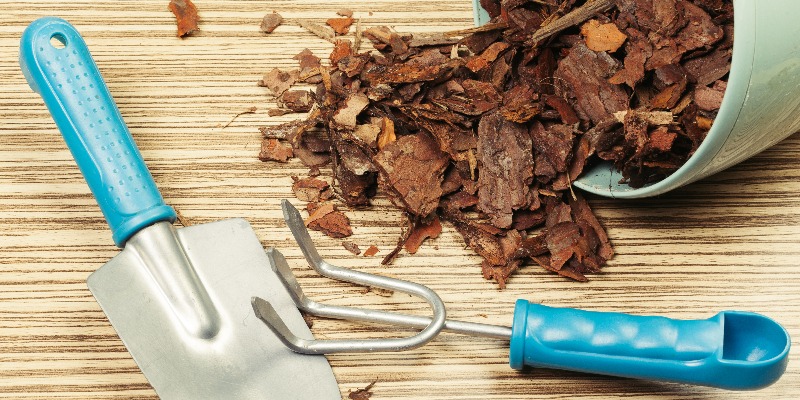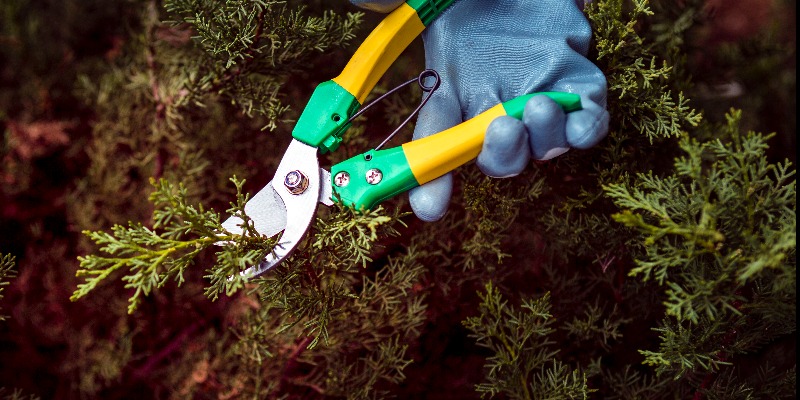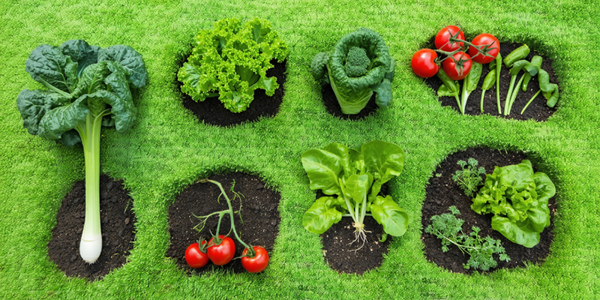How Can You Get Rid Of Weeds Without Hurting Your Plants?
Weeds are every gardener's worst enemy. These unwanted plants and offshoots can steal valuable nutrients, water, and necessary sunlight from your garden plants, making it harder for your garden to grow and flourish. But yanking them out by hand every week can be very exhausting. It can be time-consuming and requires repeating the process several times.
Most new gardeners do not know how to eliminate weeds without harming the plants. They often use harsh chemicals to remove weeds, damaging soil health.
Here are some of the most effective, plant-safe ways to remove and prevent weeds in your garden.
1.Use Mulch
Mulch is often known as the Best Natural Weed Barrier. It is one of the simplest and most effective ways to control weeds without chemicals.
A thick layer of organic mulch blocks sunlight prevents weed seeds from sprouting and keeps the soil moist and cool.
What Are The Best Mulches For Weed Control?
Wood chips or bark – These are best for flower beds and pathways.
Straw or grass clippings – They are great for vegetable gardens.
Leaves or pine needles – Such mulches are ideal for acid-loving plants.
Compost – It can add valuable nutrients while suppressing weeds.
How To Mulch For Maximum Weed Suppression?
You should first pull existing weeds. Then, start laying the mulch.
Next, apply 2-4 inches of mulch around your plants. Always leave space around stems, as this will prevent rot.
Replenish mulch every few months. This is because it breaks down regularly.
Avoid using hay mulch. It can introduce unwanted seeds. Only use it if it is weed-free.

2. Hand-Pull The Weeds
Hand-weeding may not be glamorous. However, when done correctly, it's highly effective. The trick? Get the root—not just the top.
What Is The Best Time To Pull Weeds?
After rain or watering – Soft soil makes it easier to remove roots.
In the morning – Before the heat dries out the soil.
What Tools Can Make Weed Removal Easier?
Hand weeder – Perfect for dandelions and deep-rooted weeds.
Hori Hori knife – Cuts through roots with ease.
Scuffle hoe – Slices weeds just below the surface.
Pro Tip: Don’t compost invasive weeds like bindweed or crabgrass—they can regrow from tiny root fragments.
3. Use Solarization To Kill Weeds
If your garden has a serious weed problem, solarization can eliminate them without chemicals.
How Can Solarization Help To Kill Weeds In Your Garden?
Water the soil deeply to encourage weed growth.
Cover the area with a clear plastic tarp (not black—clear plastic traps heat better).
Weigh down the edges and leave it for 4-6 weeks during hot weather.
The trapped heat kills weed seeds and roots, sterilizing the soil.
This method works best in summer when temperatures are high. Avoid using it in areas where you want to keep soil life active.
4. Cut Off Weeds At The Root (Instead Of Pulling)
Cutting weeds that regrow when pulled off at the base is better, as this can weaken them over time.
How Can You Cut Off Weeds?
Use sharp pruning shears or a weed knife.
Cut weeds at the soil level instead of pulling.
Repeat regularly until the weed exhausts its energy and dies.
Best for: Tough weeds like thistle and horsetail that regrow from deep roots.

5. Boiling Water Is A Quick Weed Killer
A kettle of boiling water is a simple, chemical-free way to kill weeds. This can be done in driveways, patios, or between pavers.
How Can You Kill Weed Using Boiling Water?
Pour directly on weeds only—hot water will kill anything it touches.
Works best on small weeds with shallow roots.
Avoid using near delicate garden plants.
Pro Tip: Add a tablespoon of salt for extra effectiveness—but use sparingly, as too much salt can harm the soil.
6. Vinegar Is A Natural Herbicide
Vinegar, also called acetic acid, can kill young weeds by drying them out. However, it's non-selective. This means it can destroy everything. This may include your garden plants also.
How To Use Vinegar For Weed Killing?
Use 5% household vinegar for small weeds. For tougher weeds, use 20% horticultural vinegar.
Apply directly to weed leaves using a spray bottle.
Avoid the soil—vinegar can kill beneficial microbes.
Best for sidewalk cracks, garden edges, and driveways.
Vinegar is not recommended for deep-rooted perennials like dandelions. It kills the leaves, but the root survives.
7. Prevent Weeds Before They Start
Stopping weeds before they take hold saves time and effort.
How Can You Prevent Weed Growth In Your Garden?
Use landscape fabric under mulch to block weeds in flower beds.
Plant densely – Less open space means fewer weeds.
Crop rotation – Changing where you plant vegetables yearly prevents certain weeds from taking over.
Use ground covers – Low-growing plants like clover or creeping thyme choke out weeds naturally.
Bonus: If you have chickens, let them roam in weedy areas—they love eating weeds and aerating the soil!
Have a Weed-Free Garden Without Harmful Chemicals
Chemical herbicides are not necessary to keep your garden weed-free. To control weeds, you can use natural things like mulch, hand-weeding, and innovative planting techniques. At the same time, you will be protecting your plants and soil from harmful chemicals.






